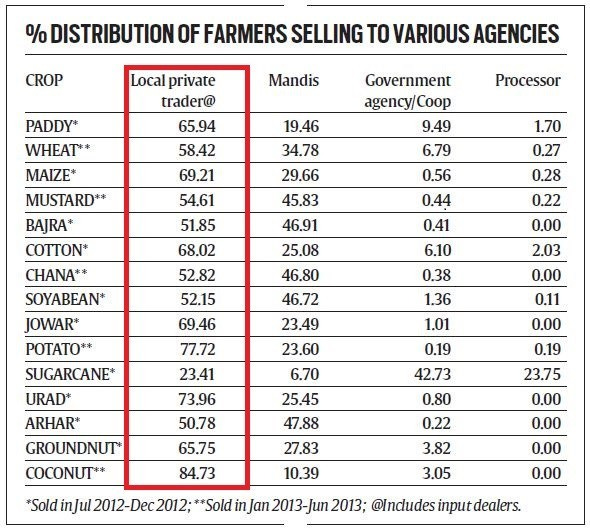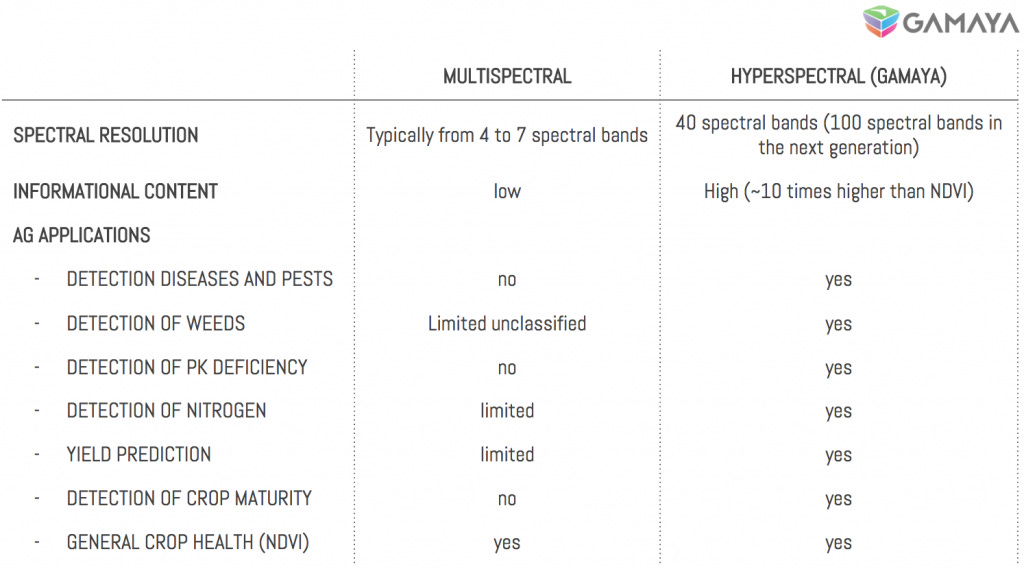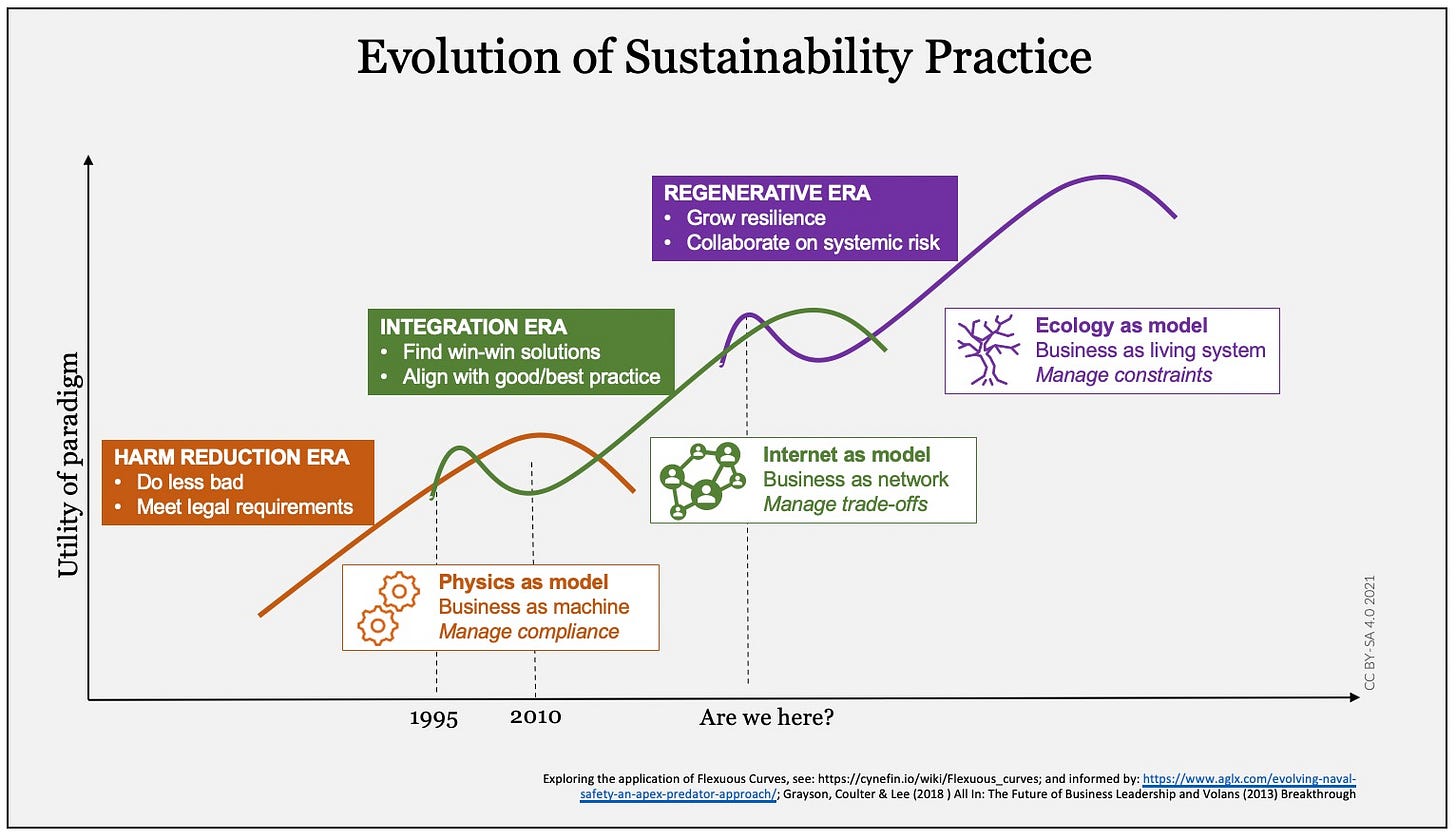Saturday Sprouting Reads (Indian Agri-Fintech, Ag Drones Business Models, Agri-Input Supply Chains, Morality of Food, ESG Pushback)

Dear Friends,
Greetings from Hyderabad, India! Welcome to Saturday Sprouting Reads!
About Sprouting Reads
If you've ever grown food in your kitchen garden like me, you would realize the importance of letting seeds germinate sooner than later. As much as I would like to include sprouting as an essential process for the raw foods that my body loves to experiment with, I am keen to see how this mindful practice could be adapted to the food that my mind consumes.
You see, comprehension is as much biological as digestion is.
And so, once in a while, I want to look at a bunch of articles or reports closely and chew over them. I may or may not have a long-form narrative take on it, but I want to meditate slowly on them so that those among you who are deeply thinking about agriculture could ruminate on them as slowly as wise cows do. Who knows? Perhaps, you may end up seeing them differently.
Subscriber-Only: Blast from the Past: Indian Agri-fintech comes of age
Most farmers in this country avail credit from both institutional and non-institutional sources. Ground experiences indicate that while the wife manages consumption-driven lending from non-institutional sources (read as middlemen), the husband manages machinery and infrastructure-focused lending from institutional sources.
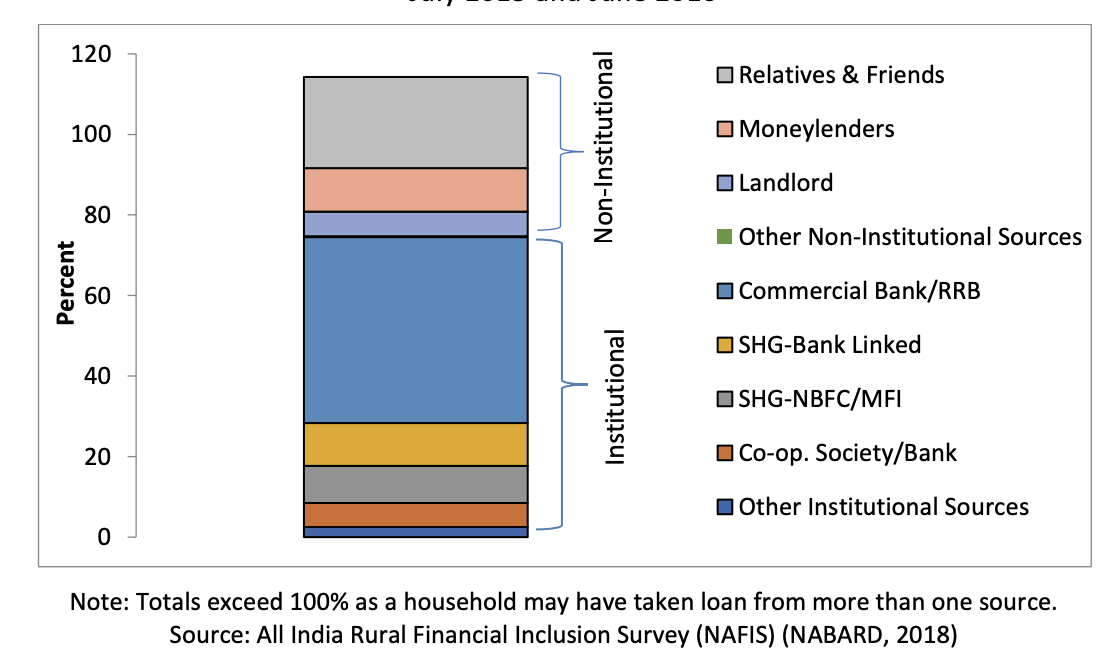
Data from Ashok Gulati’s research shows that the larger the land holdings, the greater the share of institutional credit among farmers. For marginal farmers, the share of non-institutional credit is higher. In other words, short-term production-focused credit is largely happening via middlemen.
Image Source: Harish Damodaran | Indian Express: Data Source: NSSO: Some Aspects of Farming in India' report in 2016
And so, if you study how short-term production-focused agricultural credit has been operating on the ground, the ground reality looks closer to this.
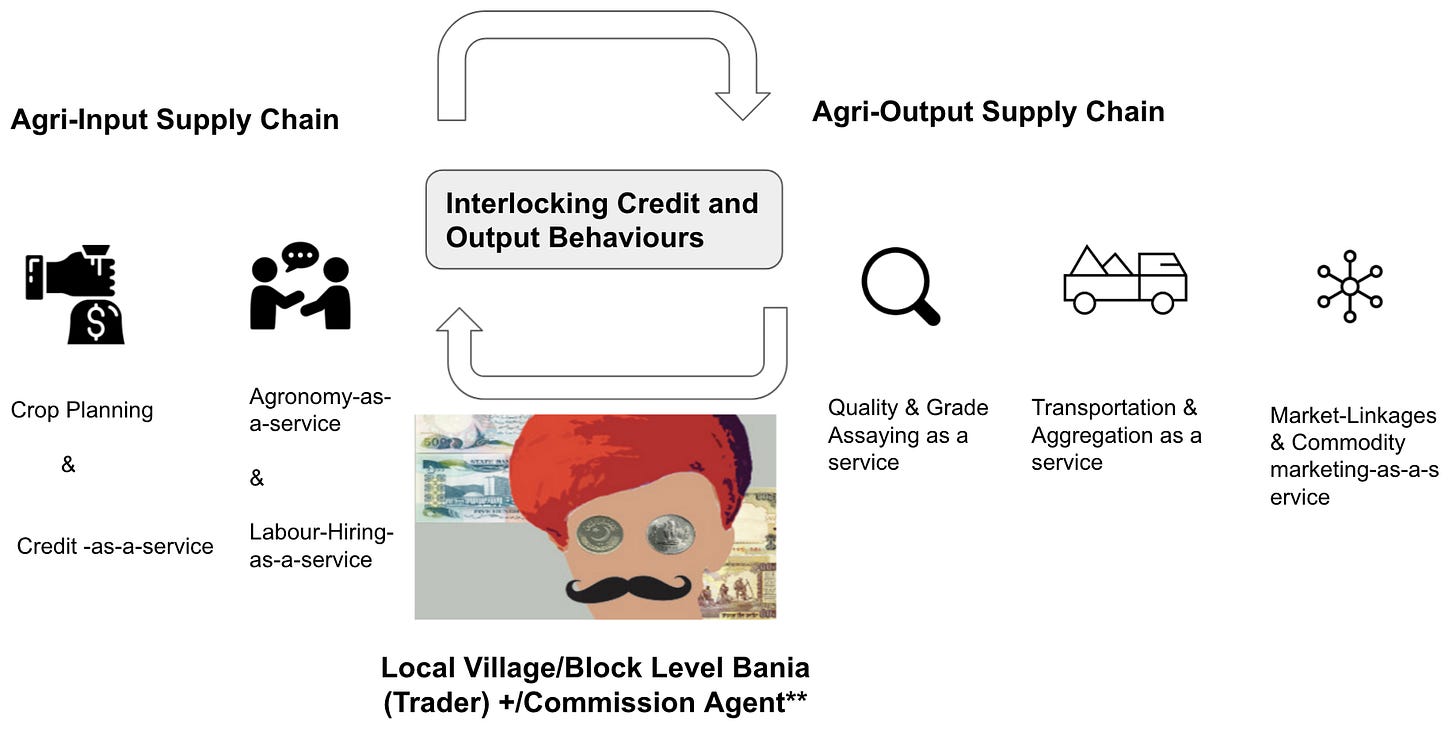
Subscriber-Only: Blast from the Past: Drones Business Models
How you think about drones will completely shape and constrain the possibilities you derive from them.
Broadly speaking, you could categorize drone business models into two types - those which are leveraging drones for spraying services and those which are leveraging drones for precision agriculture through hyperspectral and multispectral imagery.
No prizes for guessing where the excitement is more in the marketplace.
What is the right mental model to think about drones in agriculture and what can we foresee in the near future?
My bet is this - Drones will follow the trajectory of call centres which are deployed worldwide for productivity monitoring and enhancement. We may or may not like them. But, they will be inevitable. The business model for drones in spraying contexts will be subsumed by the current business models of agri-input firms.
[Subscriber-Only]: Organizing the agri-input supply chain: Unnati Vs Agrostar Vs Univia Vs Suumayo Agro
If you’ve been reading Agribusiness Matters, you would know that I am biased towards the agri-input supply chain.
If you are an agritech startup, how do you organize the agri-input supply chain, while simultaneously digitizing the agri-output supply chain?
If you are a 13-year-old startup like Unnati, you digitize the operations of agri-input retailers and agri-output traders through ustore app and slowly build a credit layer underwritten by the data that is captured through the digitized operations. With seven states’ presence, 3.9 Lakhs(~4754 USD) per retailer store revenue, and growth of 3X on a month-on-month basis over 2021, you apply for an NBFC license and aim to build a bigger pie.
“We have hit a $100 Mn run rate on GMV through 60,000 new stores already existing in the country. And this we have done on less than $3 Mn on total spend.” - Unnati CEO, Amit Sinha, in a recent investor presentation.
In this subscriber-only post, I look at the pivots and business models of Unnati, Univia, Agrostar, Suumayo Agro and look at the common threads underlying them.
Is Food a Moral Issue?
The morality of food systems is a thorny question that I often stumble into when I am attempting to make sense of the relationship between culture and agriculture.
Is food destined/doomed to be a topic that will always trigger our ancient moral impulses?
I’m using the word moral here in not just a Christian POV. I am using it more broadlyHere is a case in point that shows how complicated the issues can get.
In an interview given by environmental activist Johan Vollenbroek who has been challenging the Dutch government's failing nitrogen policy through litigation, which has snowballed into a major crisis for the Dutch government, Johan makes an interesting point.
"But on balance, the Netherlands is causing hunger in the world. The first ship that Ukraine was allowed to sail during the war did not go to starving people in a country in Africa but to the Netherlands. It was maize for our cows and chickens. The purchasing power of Dutch livestock is greater than that of people in the Sahel or Pakistan.[emphasis mine]"
How do we navigate this moral quicksand caused by our globally interconnected food systems?
Should we challenge the ‘dutch-model of turbo-farming’ for its nitrate emissions or should we support the Dutch farmers’ sovereignty to pursue their vocation (worth $108 Bn of agri export), in whom, as it is often argued, ‘true Dutch identity is vested’?
In other words, is climate change forcing us to make morally fraught decisions about the future of our food systems?
What makes food a vexing moral issue is often this - whether we talk of Indian farmers or Dutch farmers, these issues become a hot-button topic because we often link the roots of our cultural identity to farmers of the country.
If we have to unpack this dilemma deeper, we need to examine the nature of cultural evolution.
As I’ve explored before, cultural evolution, if you approximate it enough in linear terms without being teleological, was designed to prepare homo sapiens (even though we may not be wise) for modern life over a span of 5000 years.
Unlike European countries, in the case of India, given that India as a country has only had 75 years of incubation in the laboratory called "democracy", the fact of the matter is this: Culturally, India is a feudal society.
Irrespective of which country we are speaking about, whenever we talk about agriculture, our feudal impulses kick in. There are plenty of examples worldwide.And thanks to this, Indian Agriculture is suffering from “Behti Ganga (Flowing Ganges, to translate it loosely) Syndrome.
If you've grown up in India, you would know the majestic presence of Ganga and the deep reservoir of meaning it occupies in the Indian mind to cleanse the dirt (karma) of one's existence and discover one's own roots and purpose in its sacred waters.
How does the modern, urban, well-to-do millennial search for meaning and purpose in his or her life? Through discovering one's roots and vocation in culture and agriculture.
Although you could argue that this is the best way to bring some fresh, enterprising thinking in an ancient, calcified domain like agriculture (my life is a classic case study of this phenomenon), one of the unintended side effects of this phenomenon is that it has warped our collective understanding of Agriculture.
I hate to say this.
There is a cottage industry now thriving on making sense of the complex reality of agriculture in such a ridiculously simplistic way that you only end up, as Vivek V.S recently put it in his newsletter, feeling sorry for farmers.
And this is not just limited to Indian Agriculture.
When I scan updates from other parts of the world, I often see editorials which seem designed to make you feel sorry for farmers. (Walt Duflock has a good rebuttal on this)
Of course, what farmers go through in their vocation is painfully real, and if you've read my works in Agribusiness Matters, you would know that I have written enough and more about the particular kind of risks they bravely undertake, juggling their way through our broken and stressed food and agricultural system.
Now that we are discovering more and more discomforting assertions that might challenge our entrenched moral positions about food, we can expect more manipulative tear-jerker stories in retaliation.
Next time whenever you come across a sob tearjerker story about farmers, before you feel sorry for the farmers, please ask yourself: What is missing from the story? How did our food and agricultural system become the way it is?
ESG Pushback and the Regenerative Era
This is a fantastic POV on where the domain of sustainability is heading. Although I’ve been studying ESG and its pushback for a while, I have been resisting forming weakly—held opinions about it. However, over the past few weeks, some of my hunches are solidifying enough to take a deliberate stance about ESG.
What led me there was the idea of ‘theocratic capture.’
In his blog, Venkatesh Rao wrote a fantastic post ($) about theocratic capture happening in diverse domains.
What is a theocratic capture?
“Theocratic capture occurs when an institution surrenders itself to a cult demanding unaccountable authority and agency on the basis of claims to privileged knowledge about the world, unaccompanied by demonstrations of the validity of that knowledge.”
He further drops a truth bomb that might hurt ESG practitioners reading this.
“The ESG cult is fueled by the genuine issue of climate change”
I totally agree with him on this. As he explores the secular notion of cults in institutions, something which I explored tangentially while writing about palm oil sustainability certifications, he writes,
“Theocratic capture cults often emerge around genuine larger issues that trigger widespread anxieties. What makes them notable is that they demand not just to be heard on those larger issues, but treated as authoritative voices, elevated above others, and deferred to.”
When we have already crossed five out of 16 climate tipping points, it is obvious that climate anxiety is real. How do we respond then to this anxiety? In an interesting post written by Duncan Austin, he eloquently frames Climate Change in a way that is seldom appreciated.
“Climate change is a 'stop doing' problem which needs the constraining powers of public policy to be brought to bear to work[emphasis mine]. The hope had been that voluntary market-led strategies would catalyze technological substitutes fast enough to prevent the need for undesirable constraining public policies (e.g. taxes or prohibitions on use of fossil fuels). But technological substitution simply hasn't happened fast enough. Just because markets have a long history of having triggered voluntary technological substitution in many cases (e.g. cars replaced horse carts, computers replaced typewriters) does not mean that markets can always generate technological substitutes for every problem soon enough.”
Truer words couldn’t have been spoken more eloquently than this.
The funny thing here is that we don’t know how to approach a ‘stop-doing problem’.
It confounds our innovation instincts to do something. Can the regenerative paradigm help us navigate through this conundrum?
Updates and Careers from Agribusiness Matters Community
📅 Sunday 9th April 2 PM IST (930 AM GMT) - Members-Only, Panel Discussion on "Thriving in Uncertain Times" with 3 Indian Agritech startup founders: 1) Dean Dutta, CEO, Digicides 2) Sajith Abraham, CEO, MeraTractor 3) Kshitj Thakur, CEO, Agrograde
💼 Vinay Nair from Khetibuddy, India is looking to hire Sales Manager with a SaaS background.
💼 Tabbish Mahmood from Syngenta Pakistan is looking to hire Digital Marketing & Campaign Manager
💼 Brian Wade’s colleagues at Anglo American, UK are looking to hire Laboratory Technician - Product Development
P.S. I am exploring ideas to share updates/jobs/announcements from Agribusiness Matters Slack Community Members. If you are a member of the Agribusiness Matters Community and want to share interesting updates, DM me.
So, what do you think?
How happy are you with today’s edition? I would love to get your candid feedback. Your feedback will be anonymous. Two questions. 1 Minute. Thanks.🙏
💗 If you like “Agribusiness Matters”, please click on Like at the bottom and share it with your friend.


